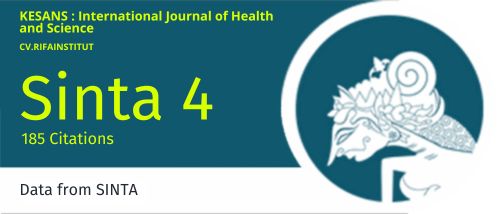Novel Predictor for Recurrent Atrial Fibrillation After Radiofrequency Catheter Ablation (RFCA): A Review of Literature to Explore The Role of Carbohydrate Antigen-125 (PCA-125) in Plasma
DOI:
https://doi.org/10.54543/kesans.v5i1.461Keywords:
Carbohydrate Antigen-125, Radiofrequency Catheter Ablation, Atrial FibrillationAbstract
Atrial Fibrillation (AF), the most prevalent variety of arrhythmia has an overwhelming prevalence in people over 65 years old, rendering it among the leading cardiovascular concerns. A literature search up to 2012 was carried out, including the following data bases: Medline, Google Scholar and Web of Science. The boolean terms word of this search were “Plasma Carbohydrate Antigen-125 OR PCA-125” AND “Radiofrequency Catheter Ablation OR RFCA” AND “Atrial Fibrillation OR AF” AND “Recurrent”. 36 articles are included in this review. Carbohydrate Antigen-125 (CA-125) expression shows its potency to predict a recurrent AF after RFCA procedures. CA-125 is released from mesothelial cells through protein cleavage, then released into body fluids, which play a role in protecting epithelial surfaces through lubrication and hydration processes. Myocardial remodeling results in pathological cardiomyocyte hypertrophy with re-expression of embryonic genes. During this process, proto-oncogenes are activated, which stimulate growth factors present in the embryonic heart, leading to increased CA-125 levels. Elevated levels of CA-125 in plasma may be an interesting option as an independent predictor of recurrent AF after RFCA.
Downloads
Published
How to Cite
Issue
Section
Citation Check
License
Copyright (c) 2025 Muhammad Fahmi Ikram, Andri Josua Barutu, Putri Rhizkikah Chairiya, Azhzhilla Izza Mora Lubis, Ahmad Aziz Multazam Rangkuti, Dieny Oktavia Rahman, Muhammad Faiz Ikram

This work is licensed under a Creative Commons Attribution-ShareAlike 4.0 International License.





















